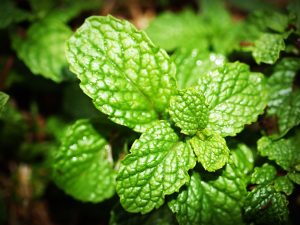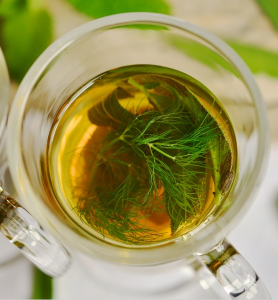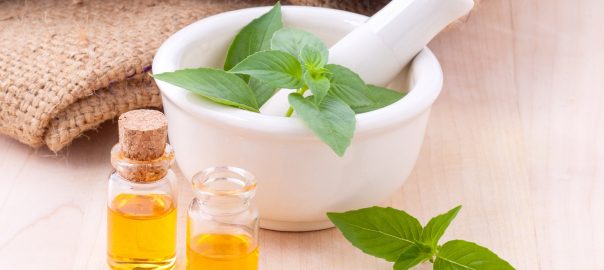Benefits of essential oils
What are essential oils
How to use essential oils
We have incorporated essential oils into our home, take small travel kits with us when we are on the road and feel that we have personally benefitted from their use. I'm far from alone in that. Essential oils are enjoying a resurgence in use and many people not only enjoy using them (because they do smell great) but they also find them to be helpful. Here are a few simple ways that essential oils can be added to a wellness routine:
- For calming and stress relieving benefits
- To soothe and warm muscles after a workout
- For an aromatic and invigorating lift
- To maintain clear airways and support breathing
- To soothe occasional skin irritations
- To use for a restful night's sleep
- To reduce the appearance of blemishes
- To reduce bloating or occasional indigestion
My story
I started, like many people, to use essential oils because I was looking for a more plant-based, non-chemical, low additive solution to a number of different things like artificial fragrances for home cleaning. The more I learned, the more oils we seemed to accumulate. In the beginning, when I first began to use essential oils I learned that it was okay to use them internally. So I did. However the more I learned about essential oils the more I began to understand how potent they really are. In response I limited which ones I was open to taking internally, severely reducing the number of oils that I was comfortable with using in this manner. I was vocal with my family and others about not indiscriminately taking a wide range of oils internally.
As my studies continued I learned more information. So that brings us to now…the reason I've written this post. I have changed my mind completely and no longer suggest or support taking any oils internally. I have come to this viewpoint from several different sources:
Conversations about essential oils
Conversations with two friends and colleagues, Heather Kaminsky and Sarah Bearden, both of whom are licensed aromatherapists and who have cautioned against taking oils internally. Essential oils are extremely potent extracts. For example, it takes one pound of peppermint plant matter to make one-half ounce (15 ml) of essential oil. Taking one drop internally is equivalent to drinking 28 cups of peppermint tea. That can be very overwhelming for your system.
Both Heather and Sarah referenced the works of Robert Tisserand (recognized as one of the leading authorities on aromatherapy and essential oils). This prompted me to learn more about him and his work. I bought a number of his books and began reading them. The more I read the more I realized that internal consumption of essential oils is not a good thing. Many essential oils are highly antibacterial. Taking them internally can impact your intestinal eco-system which is never a good idea. The oils are potent enough that aromatic use and/or diluted external use (applied to the affected area or the bottoms of the feet for systemic absorption) are still highly effective. Taking essential oils neat or undiluted should be done with caution because they are so potent. Neat application can potentially eventually lead to overexposure and may cause you to develop a sensitivity.
Science and essential oils
Plain science. Oil and water do not mix. I know this. I'm going to confess that I'm embarrassed that this never occurred to me. I was following the advice and support of those I considered to be far more knowledgeable than I was and did not ever stop to think about or consider this for myself. Oil and water do not mix. Therefore adding essential oil to water and tossing it down doesn't dilute it in any way. It's just a delivery system. However essential oils by their very nature adhere to mucosal membranes. This is part of why they are not good for your gut. They're also not good for your mouth or any other sensitive mucosal membranes.
In going back through many of the scientific studies I frequently refer to regarding using essential oils (and there are quite a few of them) the most common use, by far, is aromatically, topically is next. I find very few that suggest oral usage. Here are just a couple of studies, two for aromatic use and one for topical:
- Ambient odors of orange and lavender reduce anxiety and improve mood in a dental office
- The effects of lavender and rosemary essential oils on test-taking anxiety among graduate nursing students
- Application of orange essential oil as an antistaphylococcal agent in a dressing model
In doing my research I also looked at a couple of different aromatherapy organizations and their recommendations:
- International Federation of Aromatherapists, “No Aromatherapist shall use essential oils for internal ingestion or internal application, nor shall any Aromatherapist advocate or promote such use of essential oils.“
- Alliance of International Aromatherapists, “AIA does not endorse internal therapeutic use (oral, vaginal or rectal) of essential oils unless recommended by a health care practitioner trained at an appropriate clinical level. An appropriate level of training must include chemistry, anatomy, diagnostics, physiology, formulation guidelines and safety issues regarding each specific internal route (oral, vaginal or rectal). Please refer to the AIA Safety Guidelines for essential oil use.”
Furthermore, it turns out that some oils are hepatotoxic, toxic for the liver; even external application is not suggested for their use. Those oils have been banned and are not common nor easy to find. Other oils can be significantly dangerous when ingested. The following essential oils should never be taken internally: Aniseed, Basil, Bay, Cassia, Cinnamon, Clove, Fennel, and Tarragon.
In one case there is a report of “A near-fatal case of high dose peppermint oil ingestion.”

Although peppermint can be a supportive essential oil, when taken to excess (especially internally) it can be harmful. It's important to note that too much of anything can be bad for you. If a little bit is helpful it doesn't mean that a lot is better. In some cases, as shown by the study listed above, too much can indeed be very harmful.
Because I don't want you to be concerned about the idea that peppermint oil may kill you I'd like to share the following beneficial uses:
– easing stomach aches
– easing headaches
– soothing respiratory tract function
– soothing sore muscles
– stimulating the scalp
– boosting energy and wakefulness
– cooling and supportive for reducing fever
Drink this not that
If you want the benefit of herbs and plants and want to be able to take them internally the best possible way to do this is through the use of herbal teas. These provide far less potency than essential oils but they are no less effective. For example, while mint essential oil may help relieve some of the pressure and discomfort related to a headache, that's when it's applied externally to the temples or the base of the neck.
For internal support, mint tea can also be effective as noted in this article: Spearmint: A New Natural Antimigraine Remedy – A Personal Anecdote with Spearmint (Mentha spicata) as Migraine Prophylaxis.

Other herbal teas that can be highly supportive of a variety of health needs including:
- ginger tea – helpful to prevent or reduce the discomfort of nausea, also supportive for bloating or digestive distress
- rooibos tea – highly antioxidant, drinking this tea may be helpful for those with eczema
- dandelion tea – natural support for the liver, dandelion tea is also believed to help support bile production and digestion
- chamomile tea – well known as a calmative, this tea can be supportive for reducing stress and many people find it helpful for sleep
- raspberry leaf tea – considered beneficial for oral health including soothing canker sores and gingivitis, it's also believed to be supportive for anemia and leg cramps
I want to offer a caution as well. In all cases, you need to realize that just because these are plants does not mean that they are harmless. Herbs (and other plants) and their distillations can be highly potent and may have a significant impact on the body. They cannot be taken indiscriminately.
Having said that I don't believe that having multiple cups of herbal tea is bad for you (unless you are sensitive to any of the ingredients). I also know that I have benefitted, from using both herbal concoctions and essential oils. They can be used effectively but it must be done with caution.
In conclusion, I like essential oils, I have personally found them to be useful. However, I strongly advise against taking them internally. If you want to make use of the beneficial support of plants on an internal basis I would suggest you consider drinking herbal teas instead.
Books
These are some of my favorite herbal and aromatherapy books. I have learned a lot from them but again this is all self-study and does not indicate certification.
- The Art of Aromatherapy by Robert Tisserand
- The Complete Aromatherapy and Essential Oils Handbook for Everyday Wellness by Nerys Purchon and Lora Cantele
- The Essential Oils Hormone Solution by Dr. Mariza Snyder
- Healing with Essential Oils by Jodi Sternoff Cohen
- Aromatherapy for the Healthy Child by Valerie Ann Worwood
- The Essential Life by Total Wellness Publishing
Please note that the books listed are Amazon links and, at no extra cost to you, if you purchase through these links I may receive a small commission.

